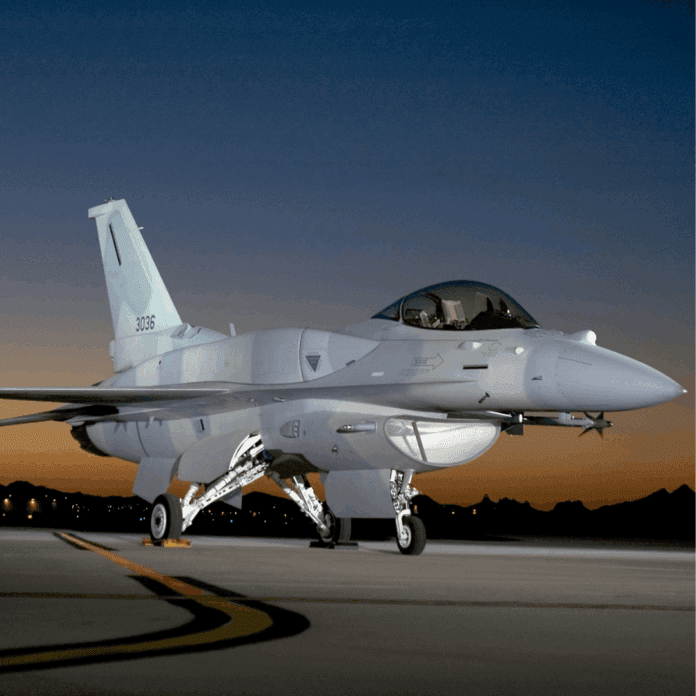Bulgaria was set to celebrate a major milestone in April when it received its first F-16 Block 70 fighter jet, a powerful aircraft made by the American company Lockheed Martin. The jet landed at the Graf Ignatievo air base near the city of Plovdiv on April 2. A few days later, on April 13, a formal ceremony was held to welcome the aircraft.
However, what was supposed to be a proud moment quickly turned into a source of serious questions and finger-pointing. The Bulgarian Parliament’s committee that keeps watch on the country’s security services announced that it would hold a special hearing on May 8.
The reason? Concerns that someone who does not have Bulgaria’s best interests in mind may have gained access to sensitive information about the jet. There are also worries that the aircraft might have been tampered with or sabotaged in some way before it was officially accepted by the Bulgarian Air Force.
These claims surfaced right before the country’s Armed Forces Day, which is celebrated on May 6. People noticed that the new F-16 wasn’t mentioned at all in the official announcement about the military parade. That raised even more eyebrows.
F-35 Future in Jeopardy as Strategic Chinese Gallium Supply Crumbles
Accusations, Denials, and More Questions
While the public wondered why the new aircraft was not included in the flypast, political leaders began to trade accusations. One side claimed that high-ranking people in the military and government were working against the F-16’s successful rollout. Others shot back, blaming the previous government for rushing the purchase without proper planning.
Amid the chaos, Bulgaria’s Air Force commander shared that the F-16 had shown a “deviation” in one of its systems after it landed. He said that this did not mean the aircraft was broken, but that it was still going through checks and test flights. The acceptance process includes both technical inspections and flight testing, and those were still underway. The commander also confirmed that American engineers from the plane’s manufacturer and the U.S. Air Force were helping with the process.
Until all checks are complete, the F-16 cannot be flown, he explained. That’s why Bulgaria’s older MiG-29 planes would continue to protect the country’s skies for now.
20 Trillion Operations Per Second—But One Hacker Can Still Ground the F-35
Meanwhile, others began to suggest that something more serious might be happening behind the scenes. A few experts pointed out that the F-16 flew over 9,000 kilometers to get to Bulgaria without any issues. They questioned why problems only appeared once the plane landed on Bulgarian soil. There were even fears raised about a possible attempt to steal or copy the aircraft’s secret software or radar systems.
Some critics claimed that the aircraft might have deleted parts of its own system to protect itself from such interference. While this was not confirmed, the idea added to growing suspicion and concern.
Calls for Accountability and More Answers
A number of military experts and former defense officials stepped forward to try and clear the air. One of them said it’s normal for advanced machines like the F-16 to have minor problems at first, especially when they are being tested for the first time in a new environment. He strongly denied any sabotage or spying, pointing out that American specialists had confirmed the issue. He added that the fault meant the jet couldn’t fly until a spare part was replaced.
However, he revealed a frustrating detail — the package of spare parts that came with the jet was too small. It had been reduced to lower the cost of the purchase deal years ago. As a result, the needed replacement part might not be available for a long time.
F-35 Fighter Jet Becomes $2 Trillion Disaster as Allies Abandon Costly Jet Amid Broken Promises
To make matters worse, government officials had earlier promised the public that the F-16 would fly during the Armed Forces Day parade. When that didn’t happen, people started to feel misled. Some critics accused decision-makers of spreading false hopes and not thinking things through before making big announcements.
There were even claims that the second F-16 jet had already left the United States and would be arriving in Bulgaria soon. But those claims were also challenged, with insiders saying that no such flight had taken place.
As the May 8 hearing approaches, three top officials are expected to testify in front of the parliamentary committee: the Defense Minister, the head of military intelligence, and the head of the country’s national security agency. They will face serious questions about whether anyone tried to interfere with Bulgaria’s military equipment and whether sensitive information was at risk.
With so many unanswered questions and rising tensions, the nation’s attention is now focused on the investigation — and the fate of its high-tech fighter jet.


